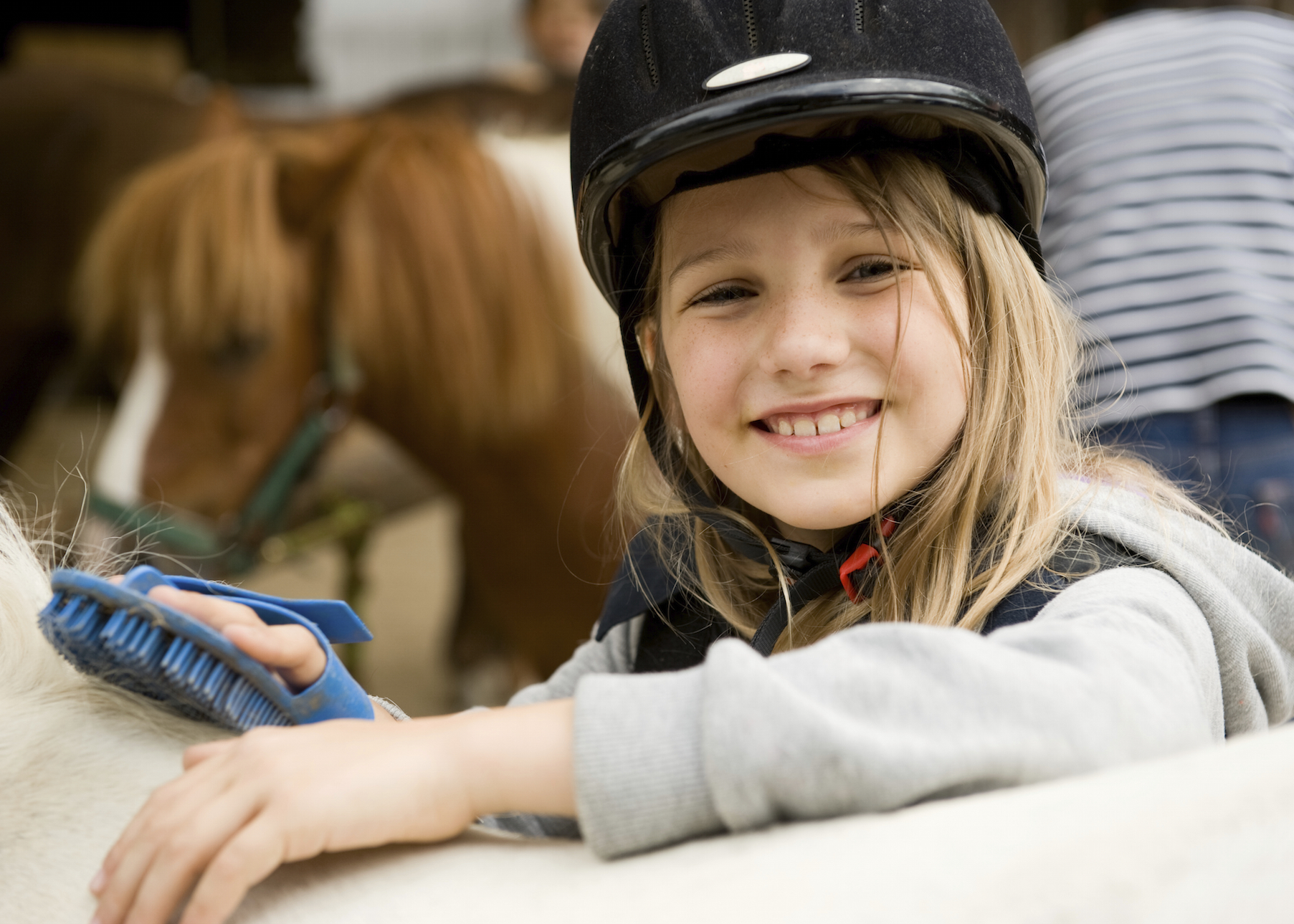Camp season is just around the corner, and while riding camps can be a great way to make extra money for your business, they’re often stressful and exhausting. The best way to have your camp go smoothly is to be very prepared. Planning your schedule and all of your activities out in advance will make your work easier and make your time as a camp counselor much less chaotic. Over the next few weeks, we will look at how to prepare for your camps to make sure they run as smoothly as possible, and what different types of activities you can use during camps to keep your campers safe and entertained.
Preparing for Camp
Early in the year, set out which weeks of the summer you’ll be hosting camp and make that information readily available to anyone who visits your website, your Facebook page and your facility. You can make your work even easier by signing up for an online booking service where parents and guardians can register for camp weeks or months ahead of time. Determine what skill level and age of campers you are accepting for each week. If you can, splitting up your camps in to different groups based on age or ability level will allow you to keep all campers engaged at all times. Set a limit to the number of campers you can host in each week, which will depend on your staff and any volunteers you have.
On your camp forms, get permission from parents on your camp forms to use any pictures you take of the campers on your Facebook page. You will also want to make sure there is a place on your sign-up forms for parents to list all allergies and health conditions of any of your campers. It’s a good idea to let the parents of all campers know about any allergens so they can avoid packing them in lunches. I like to send out an email the week before camp starts to remind everyone of what to bring and ask parents to not include any allergens in their kid’s lunches. I also like to include a place on the sign up forms for parents to explain any learning disabilities their child might have, if they feel comfortable doing so. It can be really helpful to understand if a camper has ADD, ADHD, dyslexia or any other learning disabilities when you’re teaching them.
Be very clear when your camp starts on your sign-up forms and on your website. Decide beforehand if you are willing to take campers earlier than your scheduled start time. If you are willing to take campers early, put limits on how early, and charge the campers more for the additional time. Set clear drop-off and pick up times, and have a simple activity to entertain children while they are waiting for other campers of their parents (coloring pages work well for this).
Before your week of camp starts, gather all supplies you need for the entire week of camp. Don’t wait until Tuesday night to get the craft supplies for Wednesday, there’s a good chance you’ll be exhausted from running around with campers all day and you won’t want to make a trip to the store.
And finally, just before your week of camp starts (for me this is usually Sunday afternoon) tidy up your barn and put away anything that you wouldn’t want a child to get their hands on.


For some kids, horses are the main reason to go to camp. But as parents ponder summer camp choices, adding horses to the mix introduces a whole new level of inquiry. What do novice parents and riders need to know before they sign up for an equestrian camp?
Good question. Your biggest concern should be the safety and credibility of the program your kids will be in. Look for a riding center or barn with certified and insured instructors. Some great certifications include the Certified Horsemanship Association, or CHA certification, American Riding Instructors Association, Centered Riding Certifications, and United States Pony Club certifications.